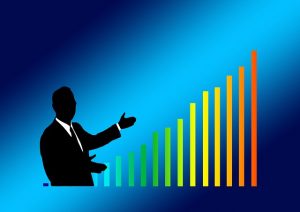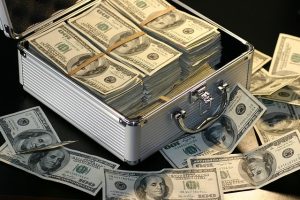Valuing Businesses: What Constitutes Value?
 Valuing a business: do you know what that entails?
Valuing a business: do you know what that entails?
Earlier this month, I did a three-part series describing various approaches used to value businesses. The main focus of those posts was correcting some general misconceptions and some bad advice that appeared in an article I recently read.
Though those posts described some of the methods we use, they did not include any discussion about what actually constitutes value or the fact that different types of buyers will arrive at different values for the same business.
Whenever we value a business, we use each of the three approaches discussed in those earlier posts. Unfailingly, each of those approaches results in different outcomes. That is, we end up with a range of values.
But when bringing a business to market, the important thing to consider is what constitutes value for the buyer. And in order to do that, you have to have some idea who the likely buyers are – and what aspects of the business they’re likely to value most.
Who are the Buyers?
Like everything else in life, businesses have different values to different buyers. So, when someone contacts us and asks, “What’s my business worth?”, we’re likely, as I wrote on Part 1 of that three-part series, to respond with, “It depends.”
And though it depends on a lot of things, one of the most important is the buyer.
We’ve launched a coaching program specifically tailored to Realtors that want to sell businesses and to novice business brokers.
If you’d like to learn more, email me at jo*@*******************og.com
Many sellers are looking for a number, something no professional business broker can provide.
As I mentioned above, any legitimate valuation process will result in a range of values. For many businesses, we’ll consider that range of values, apply an admittedly somewhat arbitrary weighting process and arrive at what we refer to as the Most Probable Selling Price – something we expect a legitimate offer to reflect but never to match.
But we are at pains to council our clients that the Most Probable Selling Price is no more than an approximation – and we advise them to consider the range of valuations that our work produced.
But even then, depending on the business at issue, we discuss how different buyers will value a business differently.
What Constitutes Value?
As I’ve often preached, there are two primary types of buyers, financial and strategic, and each type has a number of sub-types.
 And though they look at potential acquisition targets in very different ways, they ultimately buy based on the expected future earnings of the business. But those earnings are derived differently and therein lies the way each type approaches value.
And though they look at potential acquisition targets in very different ways, they ultimately buy based on the expected future earnings of the business. But those earnings are derived differently and therein lies the way each type approaches value.
In the case of financial buyers, they consider how much cash the stand-alone target will generate going forward. It’s generally the answer to the question, “How much money will this business put in my pocket?”
In the case of strategic buyers, they consider how the target might enhance their existing business operations; by adding product or service lines, expanding into new geographic areas, providing a new client base and similar synergies.
In short, there is a range of buyer types each of which will value expected cash flows differently – and almost certainly will arrive at different values.
What this means is that businesses have more than one value and that value is dependent upon many characteristics of the environment that exists at the time, including the terms of the deal, the rate of return required by the buyer, economic and market factors at the time the business is brought to market, the availability and cost of financing and the objectives of the various types of buyers among other factors.
_____________________________________________________________________________
Our course, “Learn How to Value and SUCCESSFULLY Sell Businesses“, teaches how to value and sell businesses.
Become a Professional Business Broker…
Our job is to provide the seller with the expected range of values – not a definitive number – that market conditions at the time we do a valuation suggest.
When selling a business, there are several so-called “value drivers” to consider.
The Broker’s Due Diligence
Predictability of Earnings:
 Has the business been historically profitable? Have the business’s earnings been growing at a steady rate? Is there some reasonable certainty that earnings will continue to grow?
Has the business been historically profitable? Have the business’s earnings been growing at a steady rate? Is there some reasonable certainty that earnings will continue to grow?
If the buyer can see that earnings have been steadily increasing and are likely to continue to increase, that buyer – particularly if it’s a financial buyer – is likely to place a higher value on the business.
Dependency
Can the business operate without the current owner?
If the business is dependent on the owner’s involvement or relationships, the valuation is likely to suffer. On the other hand, if the buyers have experience in the industry – making the ongoing presence of the seller unnecessary – the business will likely enjoy a premium valuation.
Market Conditions:
Are interest rates low? Is financing readily available? Is there demand for business opportunities?
 The last four years have been a period of frenetic activity in the mergers and acquisitions industry. There’s been a lot of money in search of good businesses to buy. Interest rates have been at historic lows and the climate for business – regulatory and economic – has been very favorable. One of the biggest restraints on business prior to the arrival of the virus has been the inability to find workers.
The last four years have been a period of frenetic activity in the mergers and acquisitions industry. There’s been a lot of money in search of good businesses to buy. Interest rates have been at historic lows and the climate for business – regulatory and economic – has been very favorable. One of the biggest restraints on business prior to the arrival of the virus has been the inability to find workers.
Most observers are predicting increased regulatory headaches for businesses as well as higher taxes over the next few years which are likely to slow the pace of growth that was seen before the virus. But one thing is certain: Baby Boomer business owners are heading for the exits – the so-called Silver Tsunami that has been heading our way for a couple of years now. This means more and more businesses will be coming to market.
A combination of those three factors – higher taxes and more regulation, which will put downward pressure on earnings, and more supply from Boomers wanting to ride off into the sunset – will, in many case, put pressure on valuations.
Price and Terms:
Does the seller want more for the business than the valuation results suggest it’s worth? Is the owner ready to provide some financing with attractive terms? Are the key employees ready to continue to help build the business? Is the owner willing to stay on for an extended period? Is the seller open to an earn-out?
The price a seller wants for their business and the terms that seller is willing to offer – or accept – will all impact value. And that value will be impacted differently for different buyers. Buyer-friendly terms are likely to increase the value in the eyes of many buyers.
All these things impact a business’ value. It’s important that our selling clients understand this and it’s important that we explain it early on, not six months in when we presenting the fifth offer that doesn’t meet our client’s expectations.
The Bottom Line
 Valuing a business is an inexact science – as much an art. The truth is that a business does not have one value. Most businesses have a range of values reflecting the fact that potential buyers are likely to have different objectives when considering acquiring a business. And beyond that, value will vary depending on the terms of a deal, economic and market factors, and what types of buyers might be considered targets.
Valuing a business is an inexact science – as much an art. The truth is that a business does not have one value. Most businesses have a range of values reflecting the fact that potential buyers are likely to have different objectives when considering acquiring a business. And beyond that, value will vary depending on the terms of a deal, economic and market factors, and what types of buyers might be considered targets.
While business brokers provide owners with valuations of their business, what we’re really doing is showing our clients an expected range of possibilities given the current and expected market conditions and sentiment. Business owners are unlikely to be aware of all the aspects that go into business value. Professional business brokers are needed to provide that insight.
If you have any questions or comments on this topic – or any topic related to business – I’d like to hear from you. Put them in the comments box below. Start the conversation and I’ll get back to you with answers or my own comments. If I get enough on one topic, I’ll address them in a future post or podcast.
I’ll be back with you again next Monday. In the meantime, I hope you have a safe and profitable week.
Joe
 #business #businessacquisition #sellabusiness #becomeabusinessbroker #businessbrokering #businessvaluation #MergersandAcquisitions #buyabusiness #sellabusiness
#business #businessacquisition #sellabusiness #becomeabusinessbroker #businessbrokering #businessvaluation #MergersandAcquisitions #buyabusiness #sellabusinessThe author is the founder of Worldwide Business Brokers and holds a certification from the International Business Brokers Association (IBBA) as a Certified Business Intermediary (CBI) of which there are fewer than 1,000 in the world. He can be reached at jo*@*******************og.com

